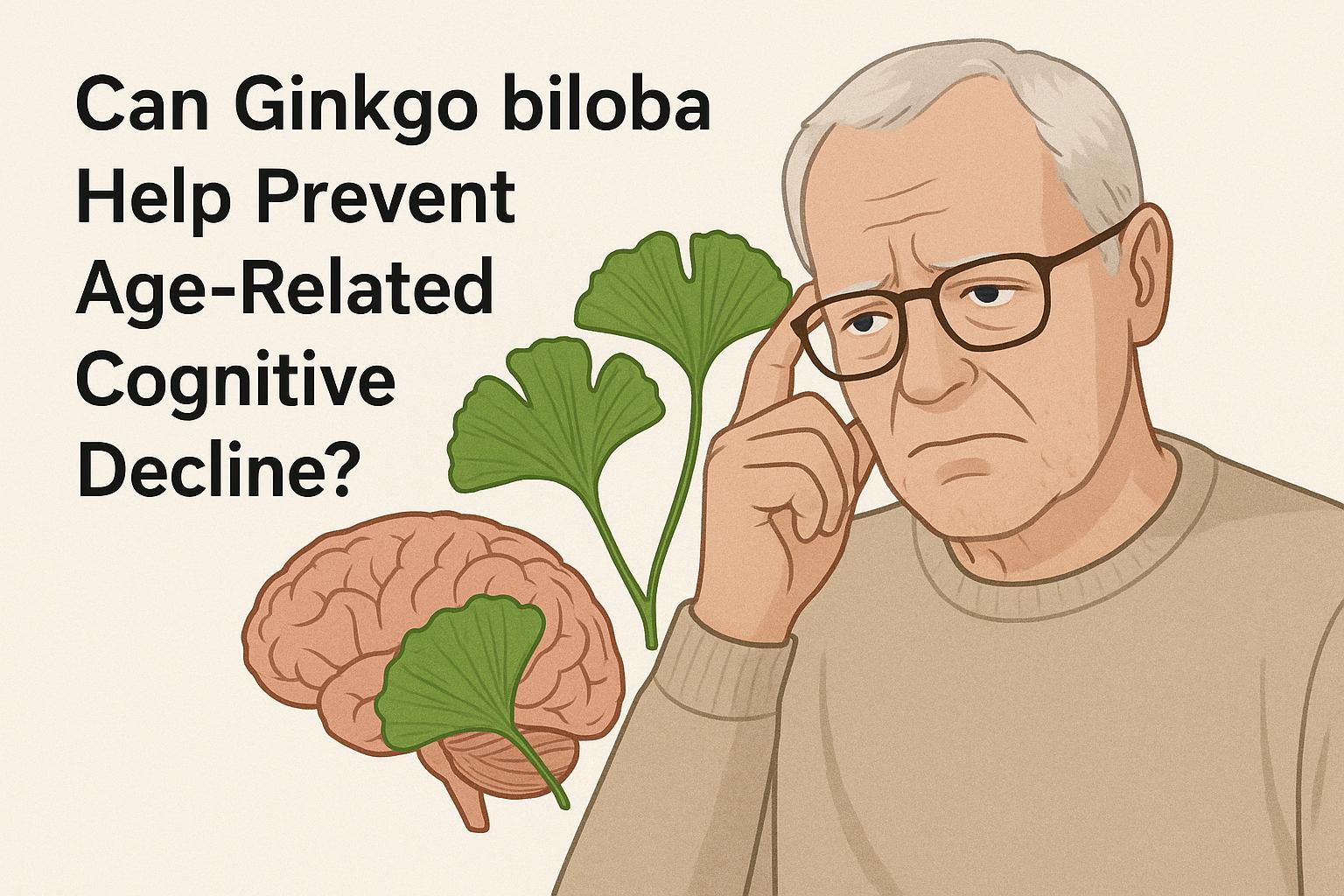Understanding Ginkgo Biloba
Ginkgo biloba, often revered for its unique fan-shaped leaves and seeds, holds a special place in traditional Chinese medicine. This extraordinary tree, native to China, has been a subject of interest both historically and in modern scientific circles. The extract derived from its leaves has been internationally recognized for its potential health benefits, particularly concerning memory and cognitive function. This interest has been fueled by the increasing need to find natural remedies for age-related cognitive decline, an issue that continues to gain importance as the global population ages.
The Active Compounds
The leaves of the Ginkgo biloba tree are rich in numerous compounds, but two primary groups stand out: flavonoids and terpenoids. Both are known for their potent antioxidant properties. Antioxidants play a vital role in the body by neutralizing free radicals, unstable molecules that can damage cells. This process of neutralization helps to combat oxidative stress. Oxidative stress is a physiological state that is believed to contribute significantly to the development of neurodegenerative diseases such as Alzheimer’s and Parkinson’s.
Additionally, these compounds in the Ginkgo biloba extract (GBE) are associated with enhanced blood circulation. By improving blood flow, particularly to the brain, GBE supports cerebral health. Increased blood circulation aids in the efficient delivery of oxygen and essential nutrients, which are paramount for maintaining healthy brain functions. Hence, GBE not only targets oxidative stress but also enhances the brain’s nourishment, contributing potentially to its protective effects.
Research Studies and Findings
Over the years, extensive research has been conducted to assess the effectiveness of Ginkgo biloba in mitigating cognitive decline. Some studies suggest that individuals who incorporate Ginkgo biloba into their regimen experience slower rates of cognitive deterioration when compared to those who take placebos. This has led to a growing body of literature supporting its potential cognitive benefits. However, it is imperative to note that the findings from these studies are mixed.
While some experiments have yielded promising results, others have not demonstrated a statistically significant difference between Ginkgo biloba users and control groups. This inconsistency points towards the complexity of its effects, suggesting that the efficacy of Ginkgo biloba may depend on various factors, including dosage, the specifics of cognitive decline being measured, and individual differences among participants. Consequently, while there is enthusiasm about its benefits, the mixed outcomes reinforce the need for ongoing research to clarify these effects comprehensively.
Meta-Analysis and Reviews
Meta-analyses and reviews are critical in providing a broader perspective on the effectiveness of Ginkgo biloba. By synthesizing data from multiple studies, these reviews offer a more comprehensive understanding of the potential cognitive benefits. Some meta-analyses have concluded that Ginkgo biloba does possess some beneficial effects on cognitive function. However, they also note that for many individuals, these effects may be modest and not clinically significant.
Conversely, other reviews highlight a stronger positive correlation between Ginkgo biloba use and cognitive enhancement. The variability in these outcomes underscores an essential point: the effects of Ginkgo biloba can differ considerably based on several factors such as the dosage administered, the duration of the treatment, and the characteristics of the population being studied. Therefore, more targeted research is necessary to better understand these variables and to identify who may benefit most from Ginkgo biloba supplementation.
Considerations and Recommendations
Despite its potential benefits, it is crucial to approach Ginkgo biloba with caution. As with any supplement, there are potential side effects and drug interactions to consider. Some common side effects associated with Ginkgo biloba include gastrointestinal disturbances such as nausea and diarrhea, as well as headaches. There are also concerns about its interactions with other medications, such as blood thinners, which can lead to increased bleeding risks.
Given the mixed evidence on its efficacy and the potential for side effects, individuals interested in using Ginkgo biloba should first consult with healthcare professionals. This is especially important for individuals on medication or those with underlying health conditions. A healthcare provider can offer personalized advice that considers individual health profiles and ensures that Ginkgo biloba aligns with an overall health strategy.
In conclusion, Ginkgo biloba holds promise as a potential aid for age-related cognitive decline, but the evidence supporting its efficacy and safety is still evolving. As with many natural supplements, individual responses to Ginkgo biloba can vary widely. This variability further emphasizes the need for personalized medical guidance when considering Ginkgo biloba as a supplement. Ongoing research will be crucial in elucidating the full extent of its benefits and informing safe, effective usage guidelines.

